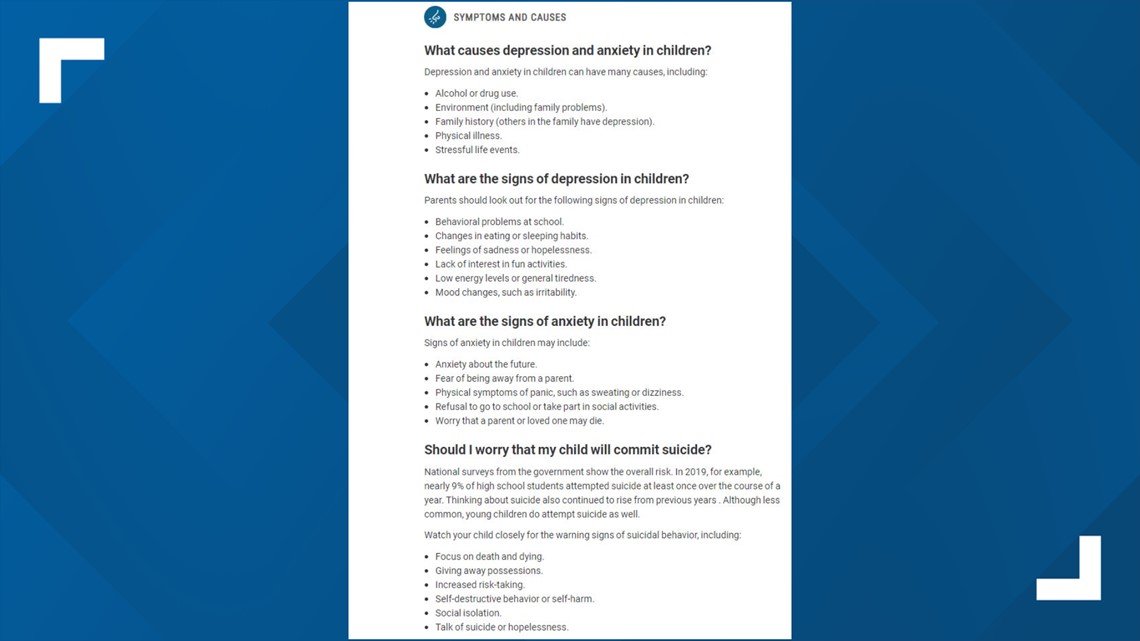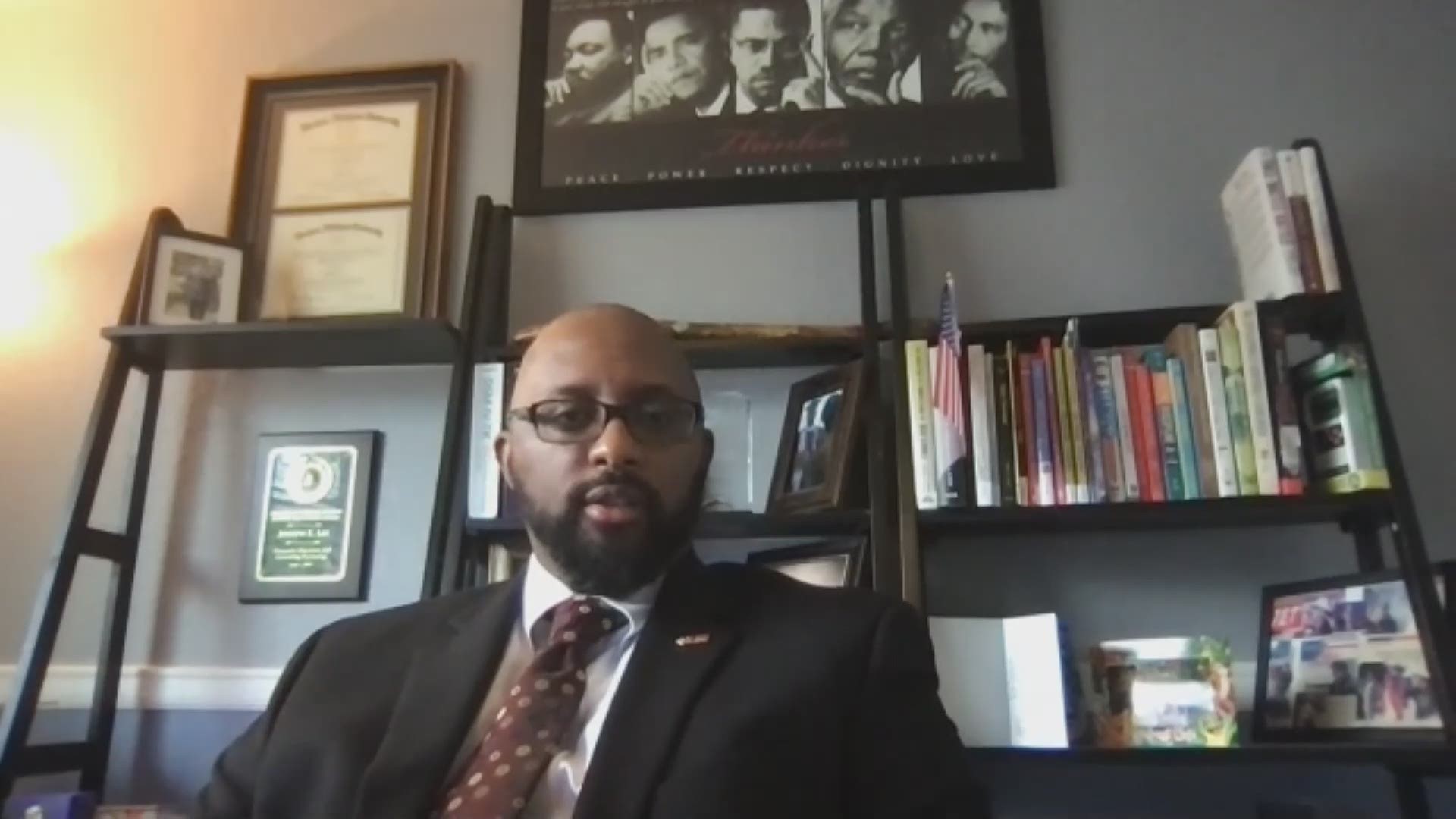GRAND RAPIDS, Mich. — May is Mental Health Awareness Month. This year, professionals around the country are shining a light on the looming mental health crisis among American children.
According to the National Alliance on Mental Illness, U.S. hospitals have seen a 31% spike in mental health emergency room visits, among children ages 12 to 17 years old, during the COVID-19 pandemic.
However, millions of youth were struggling prior to the national health emergency. And, data indicates children of color are particularly vulnerable, in the current climate.
"We've got 74% of African American or, Black youth, worried about the effects COVID-19 may have on family finances. 71% of Black youth are worried that they or a family member might be exposed to the virus. And, then, we have the stressors that are compounded because of seeing things like the unfortunate murder of George Floyd," said Joseph Lee, founder and CEO of Impact Counseling and Consulting Services. "We understand stress occurs in layers, right? So, we've had all the stresses of the pandemic; and, all the things with not being able to grieve. We have all the fears, anxieties. All of these things play into the stressors that our kids in our communities are going through."
Lee, who practices out of offices in Grand Rapids and San Antonio, is currently training educators and community leaders, through his Impact Counseling presentation, "Alarm at the Gate: COVID-19 and The Effects on Education an Mental Health for Students of Color." Lee says the pandemic only exacerbated mental health problems, for many youth.
"Understand that some of these communities are already adversely affected. So we've got, you know, some children, that maybe are having some parent-child, parent-child-sibling, communication issues. They are having parental dynamic issues. And, then, at the onset of the pandemic, when kids aren't allowed to come back to school, they were just constantly in that environment," said Lee. "School kind of served as reprieve for some of these children. They had the supports. They had counselors and coaches. They had other outlets. So, when they didn't have those anymore, some of those stressors were intensified; and, we're still feeling the reverberations of that."
Lee says he has seen a recent spike in the number of high school seniors running away from home. He's treating more youth that have exhibited suicidal ideations, homicidal ideations, and other violent or aggressive behavior.
"It's a pretty serious things in fact in one of the schools I worked with, one Friday, we had four suicide right ideations and one homicidal ideation all within one day. So, we mobilized into the classrooms; and, in the three day period, we had about 45 referrals, in 3 classes."
He says at least half of the youth were children of color.
"Just imagine, with how hard all of our kids are being hit, you know, children of color are impacted even more severely," said Lee.
According to a recent JAMA article, Black and Latinx children are more likely to have had a parent or family member, who has contracted COVID-19; lost a job, a home, or suffered some other hardship, during the pandemic.
The Congressional Black Caucus released a report, in December 2020 indicating the rate of black youth suicide is increasing faster than any other racial or ethnic group.
The sad reality is, historically, African American children are less likely, than Whites, to get mental health treatment.
"That's the other part of this, that stigma, the stereotype that we don't do counseling; you know, we don't do mental health. Well, one of silver linings of this, is that's changing. A lot of the folks that I see, are folks of color. And, that stereotype is changing because people are understanding what is needed, " said Lee. "It's a new time, but we still have some good old values that can help us navigate. And, knowing that, just taking time to listen to your child, when they open up to you, and come to you with an issue, take it seriously. You know, when they say and observe Mental Health Awareness, you've got to be, first, aware of your child."
Lee says, right now, normal routines, social interaction and healthy child-adult relationships are extremely important.
"One of the things that's key is developing programs that facilitate partnerships between schools, community organizations, and social service agencies to provide support to families," said Lee. "Definitely, using that 'It Takes a Village' concept. So, that means looking at organizations like the Boys and Girls Club, looking at the different fraternity or sorority organizations like the Divine Nine. We have to look at what type of partnerships we can set up with particular schools for mentorship, as well as some financial resources."


Lee says the most important thing adults can do is be aware of the signs of depression and anxiety in children and take appropriate action, when necessary.
►Make it easy to keep up to date with more stories like this. Download the 13 ON YOUR SIDE app now.
Have a news tip? Email news@13onyourside.com, visit our Facebook page or Twitter. Subscribe to our YouTube channel.


